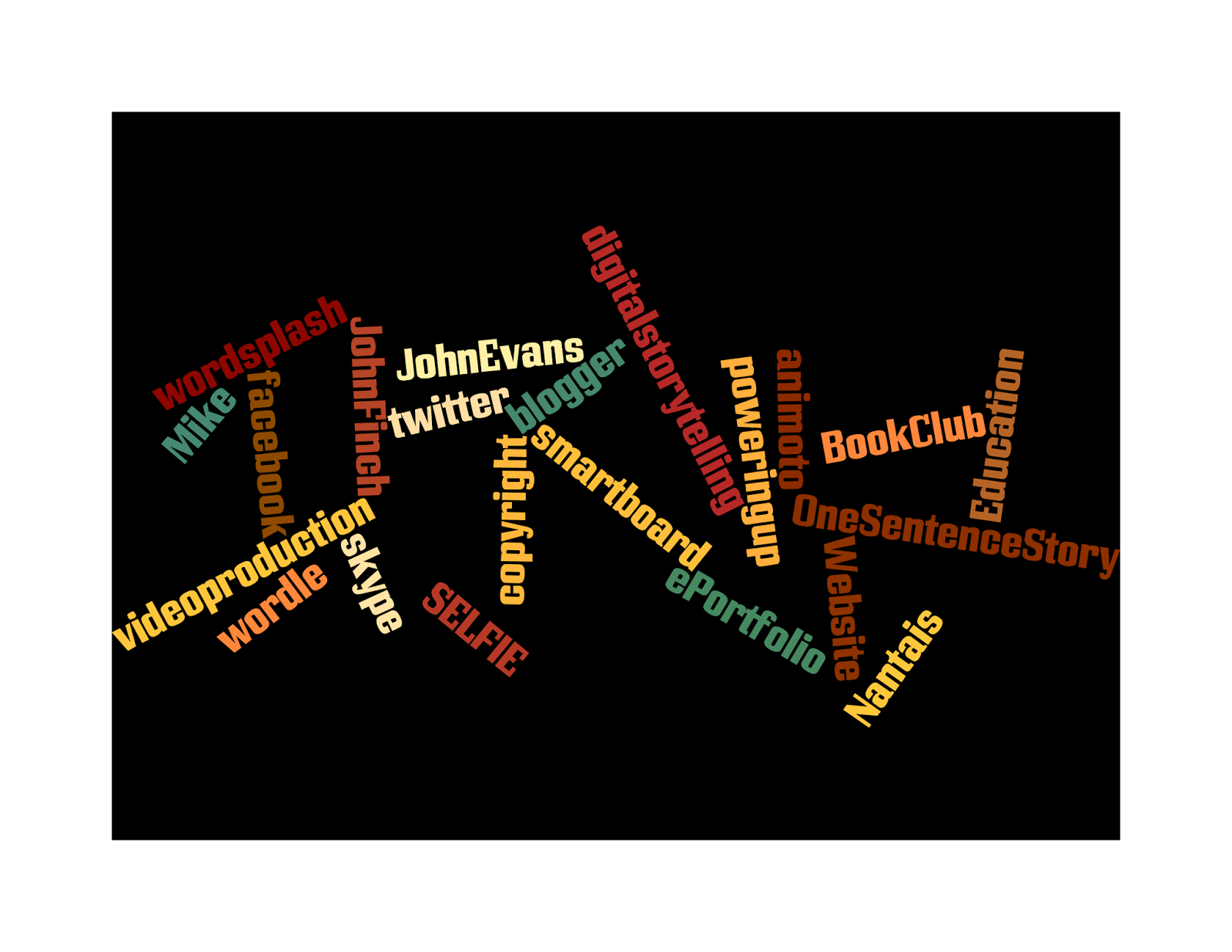Over the past 8 weeks or so, Mr. Mike Nantais has taught us a lot about different apps and programs that we should try with our students someday. It has been an absolute joy learning about these technology related topics in such a relaxed environment. Our group 11 or 12 education students are very fortunate to have the chance to learn just in our little group. Safe to say that I am now comfortable building a website (via Weebly), designing a word splash, putting together a digital story, editing photos, and producing a short video; just to name a few. Each and every one of these tasks is definitely something a middle year's student can achieve through guidance.
I consider myself an up and coming teacher that has a pretty good grasp on technology and how it could be used properly in the classroom and more so now after both of the courses I took from Mr. Nantais. But with the way young students are these days, I think a lot of middle year's students could still teach me a thing or two. Young students are spending a ton of time on their iPhones, iPads, and laptops. Bring Your Own Device (BYOD) becoming a reality in a lot of school divisions throughout North America. It is crucial that new educators are up to date on how to use technology for the purpose of learning and especially when the students are bringing their own. It obvious that Brandon University has recognized this a while ago and has provided my classmates and I with two excellent "technology" based courses related to education. Much appreciated BU and Mike Nantais.
Word splash full of ICT memories:
Monday, 3 March 2014
Saturday, 1 March 2014
Powering Up! With Shelly Wright
Over the past week, I have continued reading the text titled The Connected Teacher: Powering Up, and there were sections that kept my focus. Confessions of a Closet Constructivist by Shelly Wright, is a fantastic little article about an educator who was a constructivist and didn't even know it. According to Wright, constructivist is "Adherents of constructivism essentially believe that children learn by being actively engaged in reflecting on their experiences," it is basically saying that students learn through interactions with others. It could be classmates, teachers, or other professionals.
Wright mentions a couple issues in particular that halt this way of learning. One issue, that she herself says she is guilty of, is the teacher centered classroom. That consists of her talking and the class facing front, listening and have limited encouragement to participate in any way. She goes on to say that her class will change from this ridiculousness, and round tables will be moved into her class for more student interaction. Increased learning from fellow classmates and more hands on projects will take place regularly. This really caught my attention, because throughout my education experience I thought it was all about student engagement. No matter what it takes, make sure your students are engaged to the max. From what I have observed through student teaching and working as an educational assistant, some teachers become very stubborn and stuck in their ways and are totally against try something new in their classroom. Experimental teaching/learning is where it's at in 2014 and they must realize this sooner than later.
Mrs. Wright goes on to discuss the second issue, which is too much textbook learning. This is an issue; I know what it is like to learn from a textbook, because I did it as a young lad growing up. I realize that their wasn't as many engaging resources back in the late nineties compared to today, but to think it used to be all about textbook learning not too long ago makes you really shake your head doesn't it?
As I continue to read this text, I hope to learn a lot more from veteran educators and gain better understanding of the shift to connected, inquiry driven teaching.
Wright mentions a couple issues in particular that halt this way of learning. One issue, that she herself says she is guilty of, is the teacher centered classroom. That consists of her talking and the class facing front, listening and have limited encouragement to participate in any way. She goes on to say that her class will change from this ridiculousness, and round tables will be moved into her class for more student interaction. Increased learning from fellow classmates and more hands on projects will take place regularly. This really caught my attention, because throughout my education experience I thought it was all about student engagement. No matter what it takes, make sure your students are engaged to the max. From what I have observed through student teaching and working as an educational assistant, some teachers become very stubborn and stuck in their ways and are totally against try something new in their classroom. Experimental teaching/learning is where it's at in 2014 and they must realize this sooner than later.
Mrs. Wright goes on to discuss the second issue, which is too much textbook learning. This is an issue; I know what it is like to learn from a textbook, because I did it as a young lad growing up. I realize that their wasn't as many engaging resources back in the late nineties compared to today, but to think it used to be all about textbook learning not too long ago makes you really shake your head doesn't it?
As I continue to read this text, I hope to learn a lot more from veteran educators and gain better understanding of the shift to connected, inquiry driven teaching.
Subscribe to:
Comments (Atom)
